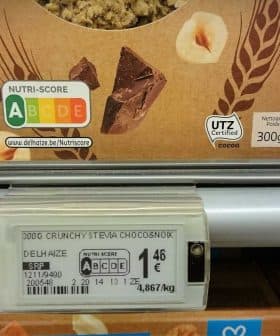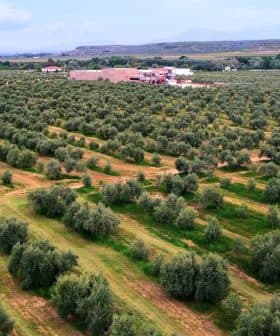Europe to Ban Refillable Olive Oil Cruets in Restaurants
Starting next year, olive oil in the European Union must be sold in non-reusable containers with clear and visible labels indicating product description and origin, in order to protect and inform consumers. Despite facing opposition from nine countries, the measures proposed by European Commissioner for Agriculture Dacian Cioloş aim to prevent deceptive practices and will be enforced with national penalties set by member states.

Olive oil available to consumers in food-serving outlets in the European Union will have to be packaged in properly-labeled, non-reusable containers from next year, and olive oil labels must indicate the product description and origin in a more visible and legible way.
The measures are among various amendments planned to the E.U. marketing standards for olive oil and designed to better protect and inform consumers while also ensuring the quality and authenticity of olive oils.
They are among changes resulting from European Commissioner for Agriculture Dacian Cioloş’s action plan for the EU olive oil sector, released for discussion last June.
It is hoped they will prevent practices such as restaurants serving patrons olive oil that is cut with cheaper oils, and labels that confuse or mislead consumers.
Nine countries opposed the changes
When the measures were put to the vote on Tuesday at a meeting of the Management Committee for the Common Organisation of Agricultural Markets in Brussels, they failed to gain what is known under the E.U.’s weighted voting system as a qualified majority.
According to Brussels sources, there were 195 votes in favor, 94 against and 53 abstentions. One member state was absent from the meeting of the committee, which includes agricultural experts from the EC and the 27 EU member states.
Countries voting in favor included Cyprus, France, Greece, Ireland, Italy, Spain, Slovenia, Slovakia, Poland and Portugal. It’s understood the Czech Republic, Latvia, Lithuania and Romania also supported the moves this time having voted against them in an indicative vote in February.
Nine countries voted against the moves — Austria, Bulgaria, Denmark, Estonia, Finland, Germany, Luxembourg, the Netherlands and Sweden — and Belgium, the United Kingdom and Hungary abstained.
Though the result is classed as a “non-opinion”, the Commission is empowered to adopt the measures and says they’ll be published by mid-June and come into force next January 1.
The amendments had earlier been referred to the World Trade Organization’s Committee on Technical Barriers to Trade, which opened a 60-day comment period expiring on April 20. No comments were received.
Penalties
Member states will have to carry out checks to ensure compliance with the regulation and set their own “appropriate” national penalties, which must be “effective, proportionate and dissuasive.” Products complying with current rules which were made and labeled in, or imported into, the E.U. and in circulation before 2014 can be sold until stocks run out.
What the planned amendments say
Ban on cruets:
- Oils made available to the final consumer in hotels, restaurants and pubs and bars shall be packed in containers equipped with an opening system which cannot be resealed after it has first been opened, together with a protection system preventing them from being reused once the contents indicated on the label have been finished
Clearer label information:
- Mandatory details shall be grouped together within the same field of vision, either on the same label or on several labels attached to the same container, or directly on the container. The characters in the text must be equal to or greater than 2 mm, if the nominal volume of the container is equal to or less than 25 cl; 3 mm, if the nominal volume of the container is greater than 25 cl but equal to or less than 100 cl; 4 mm, if the nominal volume of the container is greater than 100 cl.
For details of these and other changes planned, see the amendments to Regulation (EU) No 29/2012 on marketing standards for olive oil.
Also see Europe Closer to Banning Refillable Olive Oil Cruets in Restaurants









